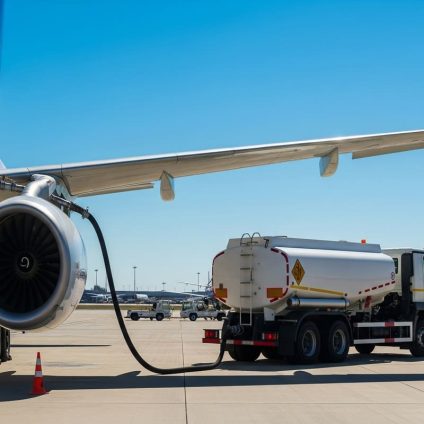In Brazil, corn ethanol production is expected to double, reaching nearly 16 billion liters by 2032. However, the Brazilian national ethanol producers’ association, UNEM, believes that the recommendations of the ICAO’s Committee on Aviation Environmental Protection (CAEP) should not be influenced by politics.

By Erminia Voccia
U.S.-Brazil clash over sustainable aviation fuel heats up
Tensions are mounting between the United States and Brazil over international certification rules for sustainable aviation fuel. According to Reuters, Washington is opposing a recommendation from the United Nations’ aviation agency, arguing it unfairly favors Brazilian corn ethanol producers over their U.S. counterparts.
While a compromise may eventually be reached, Brazilian producers warn the disagreement could erode trust in the global certification system for sustainable aviation fuels.
Toward new criteria for sustainable aviation fuel
Airlines worldwide have committed to reaching net-zero emissions by 2050. A key component of that goal is replacing kerosene with more sustainable alternatives, such as fuels made from municipal waste or used cooking oil. According to the International Air Transport Association, the green transition could cost the aviation sector as much as $4.7 trillion over the long term.
Today, sustainable aviation fuel accounts for less than 1% of total jet fuel use. Yet low-emission fuel producers may benefit from the transition and incentives now emerging in global markets. The European Union, for instance, has proposed subsidizing airline purchases of sustainable aviation fuel to accelerate adoption.
In the U.S., domestic corn production exceeds demand, prompting Midwest farmers and ethanol producers to lower their carbon intensity and tap into the aviation fuel market. Some U.S. producers are proposing the use of carbon capture and storage (CCS) technologies to meet emissions goals.
The Iowa Corn Growers Association has acknowledged that Brazilian corn ethanol enjoys a lower carbon score than its U.S. equivalent. This could make Brazil more competitive in meeting airline demand for clean fuels.
U.S. objections to ICAO recommendation
The U.S. State Department reportedly raised concerns in March over a recommendation from the International Civil Aviation Organization’s (ICAO) technical committee. The proposal would establish new criteria for evaluating sustainable aviation fuels. From Washington’s perspective, it would give Brazil a regulatory edge by assigning a lower carbon score to crop rotation systems widely used in the Country. The ICAO Council is reviewing the recommendation ahead of its next triennial assembly this fall. While ICAO cannot enforce its rules, countries that adopt its standards typically follow them in practice.
Brazil, meanwhile, is on track to double its corn ethanol output to nearly 16 billion liters by 2032. Yet UNEM, the Brazilian association of national ethanol producers, has stressed that ICAO’s environmental standards must remain independent of political interference.
“Any attempt at political interference would undermine international trust in the sustainable aviation fuel certification system,” said Bruno Alves, UNEM’s director of institutional relations and sustainability. “For UNEM, it is essential to ensure transparency throughout this technical process. Any effort to delegitimize or politicize the outcome should be considered extremely serious.”
Brazil’s corn ethanol and sustainable development
A study published in Nature in September 2024 assessed the role of Brazil’s crop rotation practices in advancing sustainable development. In Brazil, corn is commonly planted as a second crop following soy, enabling the dual production of food and energy.
Researchers found that this system generates renewable, affordable energy (5 billion liters of ethanol and 600 GWh of electricity) while cutting greenhouse gas emissions by 9.3 to 13.2 million metric tons of CO₂ equivalent. The approach also reduces land use by 160,000 hectares, enhances food security, and supports ecosystem and human health. Sustainability improves further when carbon capture and storage is integrated into the process.












